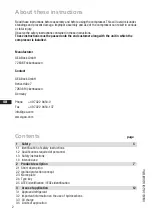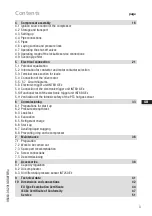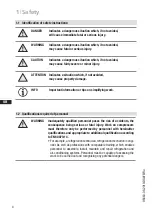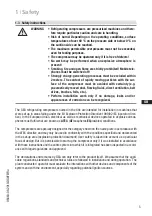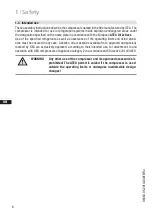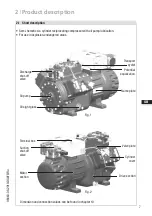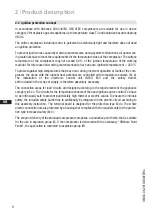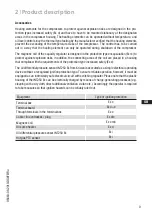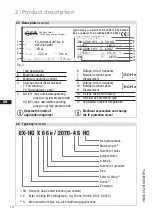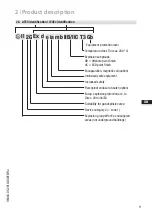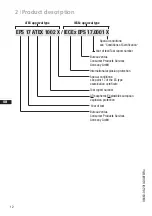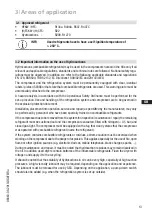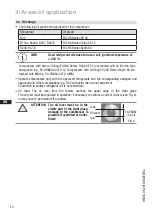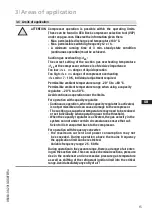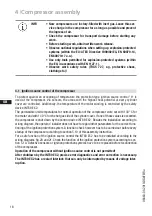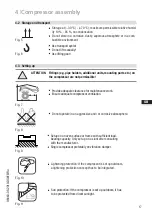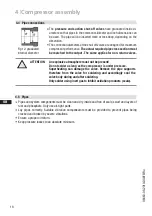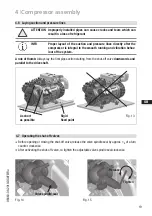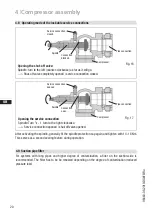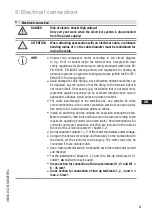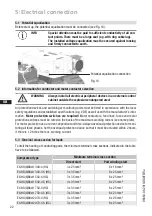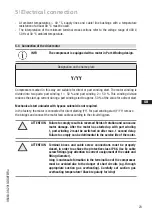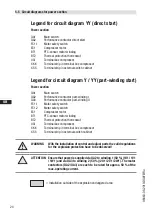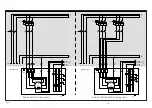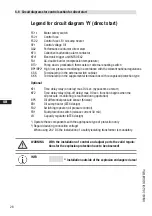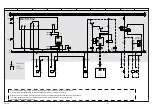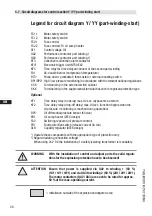
D
GB
F
E
I
13
96463-08.2019-DGbFEIRu
3
|
Areas of application
3.1 Approved refrigerant
• HFKW / HFC:
R134a, R404A, R507, R407C
• (H)FCKW / (H)CFC:
R22
• Hydrocarbons :
R290, R1270
INFO
Used refrigerants have to have a self-ignition temperature of
> 250 °C.
3.2 Important information on the use of hydrocarbons
Hydrocarbons (combustible refrigerants) may be used in the compressors named in the title only if all
relevant and applicable regulations, standards and technical rules are followed. National safety regu-
lations must be observed. In addition, we refer to the following applicable standards and regulations:
EN 378, BGR500, TRBS 2152, EC Directives 1999/92/EC and 2014/34/EU.
The compressor and the refrigeration system must be permanently equipped with clear, identical
labels
/
plates (ISO3864) that state that combustible refrigerants are used. This warning plate must be
unremovably attached to the compressor.
A hazard analysis in accordance with the Operational Safety Ordinance must be performed for the
set-up location. Use and handling of the refrigeration system and compressor are to be governed in
the explosion protection document.
Installation, placement into operation, service and repair (as permitted by the manufacturer) may only
be performed by personnel who have been specially trained on combustible refrigerants.
If the compressor has to be removed from the system for inspection
/
maintenance
/
repair, the remaining
refrigerant must be suctioned out and the compressor evacuated, filled with nitrogen (< 0.5 bar) and
closed gas-tight. The compressor must be equipped with a tag that clearly states that the compressor
was operated with combustible refrigerant (name the refrigerant).
If the system contains combustible refrigerants or residues, extreme caution must be exercised when
working on the compressor due to the danger of explosion. This applies especially for the use of fire, open
flame or other ignition sources (e.g. electronic devices, mobile telephones, static charges, sparks, ...).
During maintenance and repair, it must be noted that hydrocarbon residues may remain dissolved in
the oil. In addition used dryers contain bottoms of the inflammable refrigerants. Flush the dryer with
nitrogen and supply it to the recycling.
It should be noted that the solubility of hydrocarbons in oil can be very high, especially at high suction
pressures. A high-viscosity lubricant may be required, depending on the application and experience.
The lubricant must be released for use by GEA. Depending on the application, a pump-down switch
should also be added (e.g. when the refrigeration system is set up outside).


